Dr. Elizabeth Igaga: 100,000+ Cleft Surgeries Each Year; One Uncompromising Standard of Excellence
Our Uganda-based Director of Programs Safety speaks out
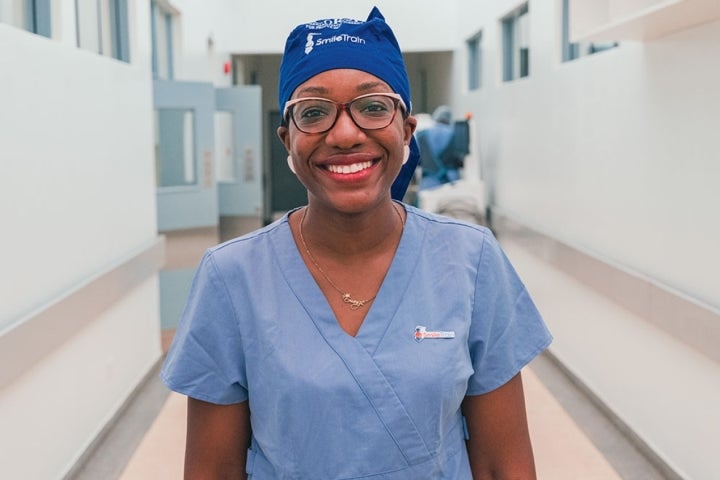
Based in Kampala, Uganda, Dr. Elizabeth Igaga is Smile Train’s global Director of Programs Safety. In this role, she ensures that every one of the 100,000+ cleft surgeries Smile Train sponsors each year meets the same rigorous standards of safety and quality. We caught up with her to discuss her path to this role, her vision for the future of global surgery, and much more.
What made you want to be a doctor and how did you pursue this goal?
We had many challenges growing up, but my dad made sure we went to good schools. I gravitated towards the sciences and ended up in medicine. Medical school in Uganda is a five-year course, and in the last two years, you get to try different disciplines. I did great in all of them, but nothing felt like home until I tried anesthesia. As it happens, my university was also trying to recruit doctors to study anesthesiology at that time, because there were only about 40 of them in a country of 40 million.
During my training, I took Safer Anaesthesia from Education (SAFE) courses that opened my mind to the world of advocacy and implementing safe surgical practices. Sometime later, I was delighted to receive an offer to do this work alongside auditors and reviewers. This experience narrowed my focus to perioperative safety; I went around assessing the quality of anesthesia care being offered at Smile Train partner hospitals in Uganda and other parts of Africa, and doing whatever I could to make it even safer.
What are the stakes of your role, for Smile Train as for our patients and partners?
The stakes are high. Smile Train has already proven that we're able to train healthcare workers in countries with minimal resources. I believe that, by working through our model, we have the capacity to likewise create an environment that will ensure every surgery we sponsor is safe and of the highest quality. So, my work is about ensuring the safety of perioperative care provided to all Smile Train patients by building on the work we’re already doing. It’s about making sure that if anything goes wrong, the cleft team members are adequately trained and equipped to respond.
Why is it beneficial that our Director of Programs Safety lives close to our programs instead of in the US?
I think it is important for contextualizing our partners’ work and for diversifying ideas. I know a lot more about working in an OR in a low- or middle-income country than someone who has never been in a situation where they haven’t always had all the tools they need right at hand.
It’s also important for me to show little girls here that it is possible. I think if you told 19-year-old me that I would be this role someday, I wouldn't have believed you. But it's possible and we’re able to do it. We're no different. Yes, we have challenges with resources sometimes, but we're able to do jobs like mine and we're able to advocate for safety and quality.
From your perspective, why does Smile Train’s model of local partnership and investment matter?
Smile Train’s model matters because it causes a ripple effect. You train one person, that person goes on to train two more, who then go on to train more, and so you're able to create a bigger network in less time and reach more people in a more efficient manner. It also allows you to leave the skills with the people you are training. With a mission-trip-based model, someone does surgery, stays for a week, then goes away. Unfortunately, when a child then develops a complication, no one knows what to do.
That’s why building local capacity is so important. Smile Train helps build local resources — instead of flying people in, we’re investing that funding into training local teams and making sure they have the resources that they need to treat patients safely. The impact is exponential.
Gallery
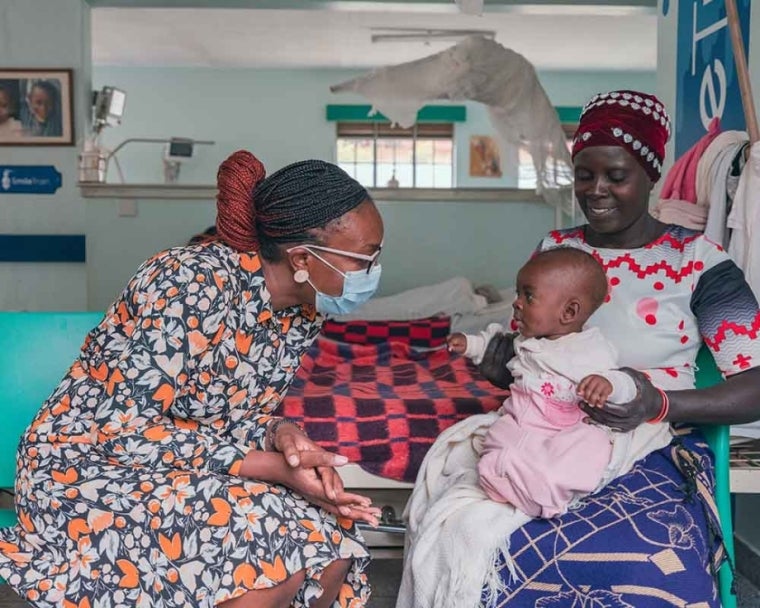
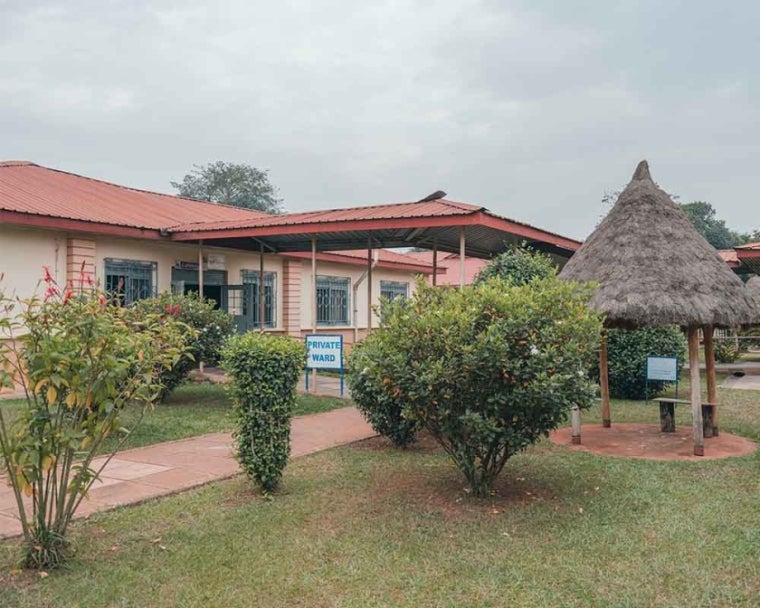
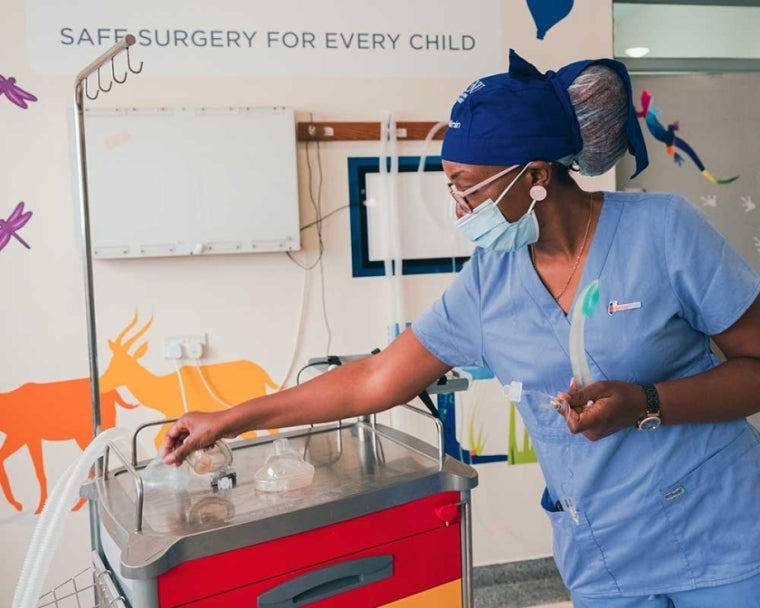
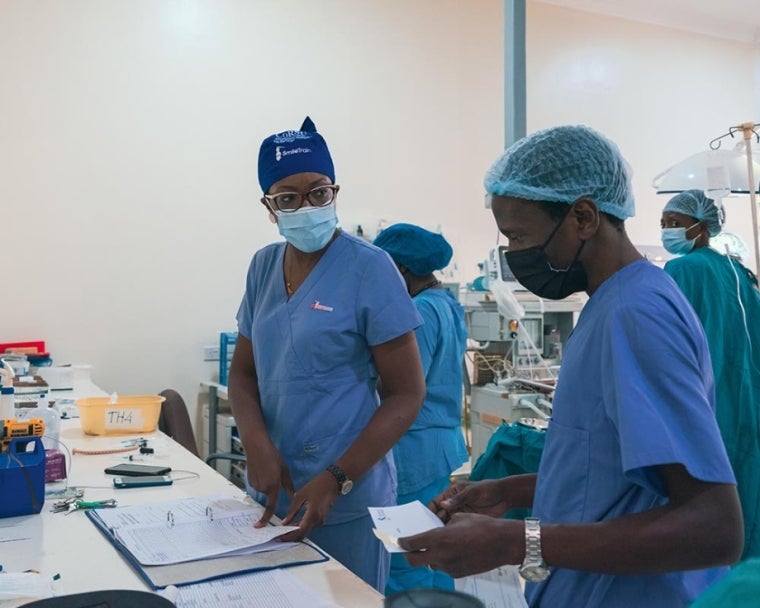
What safety and quality issues are you addressing?
One recurrent issue is that governments are not prioritizing surgery. It was only recently that WHO recognized surgery as an important part of primary healthcare.
The late Dr. Paul Farmer dubbed surgery as the “forgotten stepchild of global health.” Surgery isn’t prioritized in policymaking, and as such, the infrastructure, training, and human resources that could potentially be channeled towards ensuring safe surgery for all are diverted towards other pressing needs. We also just don’t have enough people doing this work. The Lancet Commission on Global Surgery recommended increasing the surgical workforce density to 20 surgical, anesthetic, and obstetric providers per 100,000 people in developing countries by 2030. This goal is a far cry from current reality.
Malnutrition is another major issue. Children with clefts often have lots of trouble feeding adequately. We're working with our nutrition specialists to ensure all cleft teams can assess each patient’s nutrition and provide additional support to those who are malnourished before they have their surgery.
What changes have you seen at our partners since you started in this role?
I haven’t been here long, but I’ve already seen the beginnings of a culture shift. Different specialists are working more as a team, taking collective responsibility for each patient. I’m also seeing the creation of a culture of safety. Partners feel safe talking to Smile Train because they know we are here to walk together with them on this important journey towards providing the absolute safest, highest-quality treatment for all people with clefts. That makes me happy — I wanted to be part of creating a space where people feel comfortable reaching out when they need help.
How does what we do for cleft care help improve other services at our partner hospitals?
The standards of safety that we set are not just for children with clefts. Yes, Smile Train is a cleft charity and we only fund cleft care, but we work with partners who are treating all patients. So, when an anesthesiologist is trained, they aren’t just going to take care of the children with clefts, they're also going to take care of all children.
It’s the same with equipment. Smile Train supports our partners with grants to buy and train their staff to use the latest medical equipment needed for cleft care, but once it’s in the OR, it’s there to benefit everybody. Everything that we do for our partners eventually benefits every patient. So, while we are trying to solve one medical issue, we are also solving a bigger problem — universal safe surgery. It’s the same for nutrition and other aspects of care: if we're training nutritionists to help children with clefts, they're going to apply those learnings to other children. I think it’s very important to impact the world even beyond clefts.


